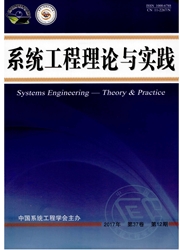

 中文摘要:
中文摘要:
以由一个风险中性制造商和一个具有风险规避特性销售商组成的两阶闭环供应链为背景,构建了loss-averse闭环供应链,证明了收益共享契约和批量折扣契约均能克服双重边际效应和风险规避效应,使loss-averse闭环供应链达到协调状态,并给出了契约参数的取值范围和变化规律,同时从制定成本和实施成本两个方面对契约进行了比较.最后,通过算例研究和对基于收益共享契约的loss-averse闭环供应链协调模型的灵敏度分析,验证了该模型的有效性及实用性.
 英文摘要:
英文摘要:
A two-echelon closed loop supply chain with a risk-neutral supplier and a loss-averse retailer was established,and the impact of revenue sharing contract and quantity discount contract was analyzed in the channel,which showed that the two contracts could eliminate the double marginalization and risk aversion effect,and hence the loss-averse closed loop supply chain could achieve coordination.Also,the bound and rule of the contract parameters were given.Moreover,the two contracts were compared from the aspect of design and implement cost.Finally,by the study of an example and the sensitivity analysis of loss-averse closed-loop supply chain coordination model based on revenue sharing contract,the effectiveness and the practical value of model is verified.
 同期刊论文项目
同期刊论文项目
 同项目期刊论文
同项目期刊论文
 期刊信息
期刊信息
